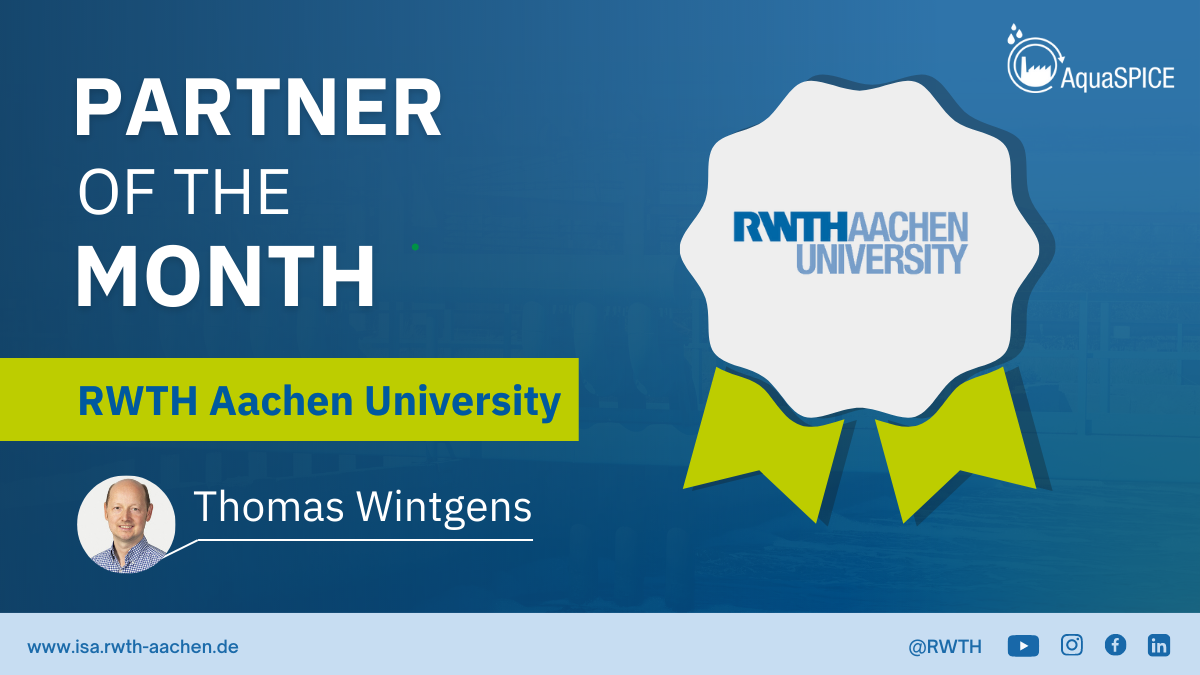Can you tell us about your role in the AquaSPICE project?
RWTH is honoured to lead this ambitious project with its 29 partners in 12 countries. The lead involves many management tasks but more importantly it aims at fostering interactions between project partners. The intention is to make the most of the knowledge generated in the various work packages (WP) by creating synergies and applying the findings in industries.
The Institute of Environmental Engineering (ISA) of RWTH Aachen University is strongly involved in CS#1 led by DOW in Böhlen, Germany. RWTH’s role is to provide scientific input to the case study, select appropriate treatment technologies and run experimental trials to achieve the water savings goals set by DOW (WP2&6).
RWTH is also involved in other work packages, such as supporting the assessment of industrial water efficiency approaches, drivers and barriers in WP1. Furthermore, RWTH is coordinating WP2, which has started selecting and configurating the best treatment technologies for each particular case study site, looking at optimal design, operational procedures and technological constraints.
What do you consider as important water management challenges in the industrial sector?
Water management is becoming an increasingly important aspect for the process industry. The challenges include an increasing need for better environmental protection, leading to a higher level of required treatment before discharge into waterways. In addition to a stronger emphasis on water and wastewater treatment, water supply is becoming a challenge for the industrial sector as more and more regions are affected by increasing water stress.
What do you think are the main benefits the project brings forward and in which areas are you expecting AquaSPICE to have an impact?
To address the key challenges, technologies and (i.e. digitalization) concepts are being tested and further developed in AquaSPICE. This requires the integration of knowledge from many disciplines across research institutions, industries and technology providers. Due to the strength and multidisciplinary of the consortium, the impact of the technologies and services developed in the project is expected to be important, responding to the needs of the process industry.

